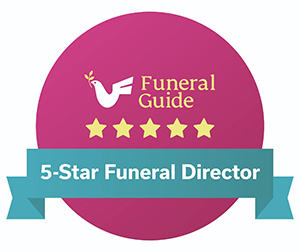Losing a loved one is one of the most emotionally challenging times that anyone faces during their lifetime. And, organising a funeral service for someone can be a stressful and overwhelming task. However, before you can start funeral planning, you must first register the death. If you are unsure about the process of registering a death, then this short guide will explain everything that you need to know.
Who Can Register a Death?
In most cases, when death occurs, it is usually registered by a close family member of the person who has passed away. However, if close family members are not available to register the death, then the following people can complete the registration –
- The person who is responsible for organising the funeral service, but not a funeral director.
- A person who lives in the same property where the person passed away.
- Any person who was present when the person died.
Where to Register A Death
To register someone’s death, you need to locate a register office and make an appointment with them. The register office needs to be the closest one to where the person died. When somebody passes away, it is important to try and call the register office as soon as possible to book an appointment, as they can often be very busy.
The Documentation You Need to Register Someone’s Death
Once you have located the register office and made an appointment with them, it is important to provide them with as much information about the person who has died as possible. Registering someone’s death normally takes about 30 minutes, and you will need to take the following documents with you to the office –
- Passport
- Marriage Certificate
- Birth Certificate
- Proof of Address
- Cause of Death Certificate (Signed by A Doctor)
However, don’t worry too much if you cannot locate some of this documentation, it isn’t always essential to have all of it. The most important piece of documentation that you must have is the Cause of Death Certificate. If you are not in possession of this, then you will not be able to register the death. In addition to the above documents, you will also need to provide the registrar with the following personal information –
- Details of when the person died and where
- Their date of birth and location
- The full name of the person who passed away
- Their full home address
- Their occupation (if they were a working citizen where they died)
Obtaining Copies of The Death Certificate
After you have registered the death, you can get the death certificate, which is a copy from the death register. You will need to get a number of copies of this certificate. For example, you may need to give it to an insurance company or bank. You may also need additional copies of the death certificate to give to the executor of the Will or the administration company who is dealing with the property of the person who has passed away.
If you need additional copies of the death certificate, then you can request them from the office where the registration took place. However, it is generally a good idea to get more copies than you need as it will be cheaper.
What If the Death Occurs Abroad?
If a loved one’s death occurs overseas, then you must register the death in the country where they passed away. You will then be required to register the death with the Foreign and Commonwealth Office.
What if A Coroner Is Investigating the Death?
If there is a reason to think that the death of someone may not be due to natural causes or an inquiry needs to be made for some other reason, then a coroner will be appointed. It is a coroner’s duty to identify how and when a person died for official paperwork. But, also to provide a compassionate understanding to the family and friends of the deceased.
Unfortunately, if a coroner is investigating the death of the deceased, then this may delay funeral planning as an inquest or post-mortem will normally take place.
Other Things That You Need to Do
Losing somebody that you love can be an emotionally draining and stressful time which most people struggle to cope with. When somebody dies, not everything needs to be straight away, but it is important to do the following –
- Start to plan ahead
- Tell the friends and family of the deceased
- Collect all the documentation you will need
- Start thinking about the funeral service
- Make contact with the deceased person’s solicitor and obtain a copy of their will. This will tell you they made any special funeral requests before passing away and who the executors of the will are.
Our friendly and compassionate team can give you advice if you are unsure about anything or need help organising a funeral or memorial, then please get touch through our contact page. S. Stibbards & Sons are here to support you throughout this difficult time.







